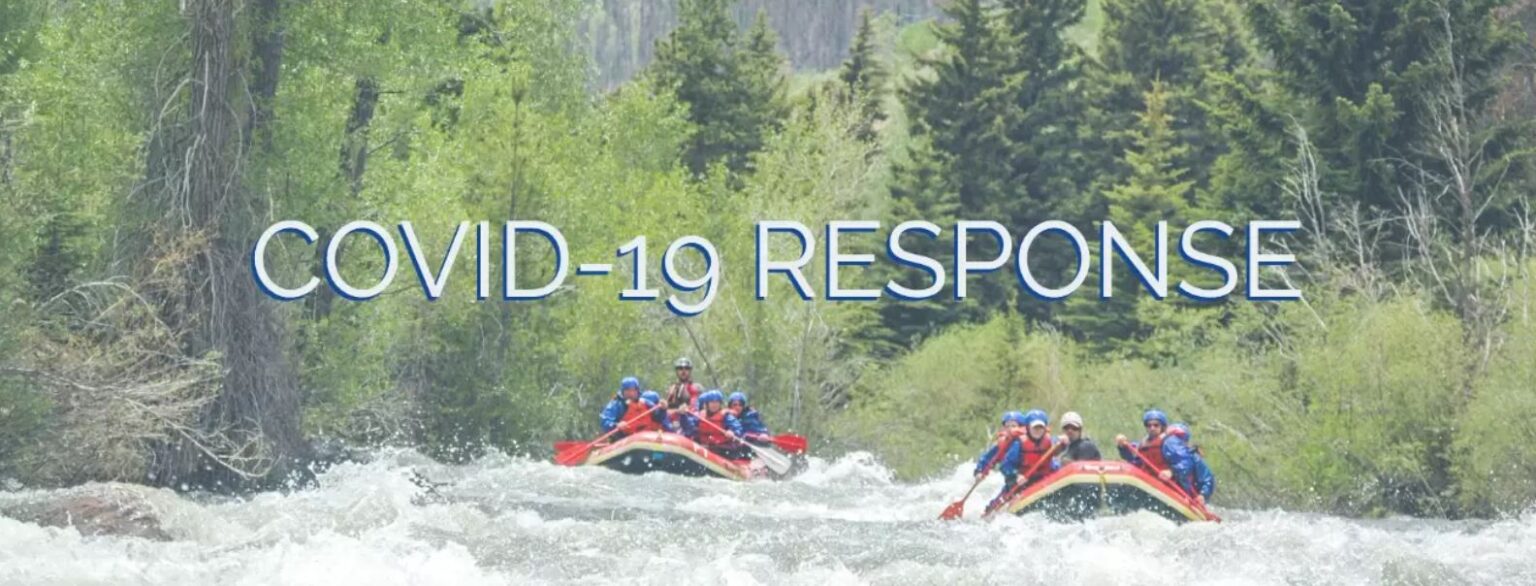How Has Coronavirus Affected The 2020 Colorado Whitewater Rafting Season?
Earlier prognostications in March and April 2020 about potentially dire industry-related consequences for the very popular outdoor recreation of whitewater rafting in Colorado, as a result of decreased demand or closure of the entire season as a whole due to the Coronavirus pandemic have turned out to be in some ways on point and in some ways exaggerated. On August 12, 2020, the Colorado River Outfitters Association issued a press release saying that the state river outfitters have become more optimistic that demand from staunch advocates and participants has increased and will hopefully help them finish the 2020 season in a better position than they expected during the Covid-19 outbreak.
They had already lost 20 days out of a roughly 100-day rafting season that would normally run from May through September and create a $188 million impact on the local economy. The season had been delayed by as much as a month in some of the Colorado rafting areas, but the anticipation now is that the demand for rafting will remain stronger than usual right into September, which is the end of the usual 100-day rafting season. The season can vary, however, from mid-April through mid-October depending on the water levels, the weather patterns, and the amount of snow.
The rafting companies have to depend on that season to make their money for the year. A decrease in visitors means a considerable financial hit for the companies that rely on out-of-state tourists for over half of their business.
Following are some of the common questions that are asked about the Colorado rafting:
Previous Experience Required?
No, but you must pay close attention to both the information outlined in the pre-rafting trip orientation and especially the commands your guide is giving you and the group as a whole during the trip itself.
Can you go rafting if you can’t swim?
The more advanced and intense rafting trips do require knowing how to swim as a precaution, but the intermediate trips do not require that. However, all rafters are required to wear a PFD (Personal Flotation Device).
What rafting equipment is provided?
Most Colorado-based rafting operations will provide a wet suit, PDF, a splash jacket, PDF, helmet and paddle. In addition, you will receive a thorough orientation on the use of those items, how to hold the paddle, what the proper commands are, and how to maintain safety before you begin your trek down the river.
How would this season be an enhanced experience?
Because of the pandemic requirements, they will have to separate people and space them out more and give each person more individual space, so it won’t be a crowded environment. It will be more personalized, have more cleaning and maintenance of equipment, and give more opportunities to experience the outdoors and the joy and excitement of white water rafting.
Take time to do the research so that you can evaluate what whitewater rafting trip you want to go on with your friends or family. Find out which one is near the city where you will be staying. Consider the ages, skills, and physical fitness of your group as well as the amount of time that you want to spend on the rafting trip and the type of trip (whether beginner or thrilling). Read the online reviews to see what others have experienced using that company.
But most of all, have fun, safely!
